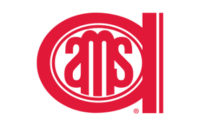Perspective shifts propel industry, AMSA’s RMC

"Don’t hide, be transparent, be who you are,” said Kelly McDonald, founder of McDonald Marketing and author of “Crafting the Customer Experience for People Not Like You,” at the American Meat Science Association’s 68th Reciprocal Meat Conference (RMC), hosted by the University of Nebraska- Lincoln and ConAgra Foods, June 14-17, 2015.
The energy and enthusiasm of McDonald’s keynote address set a passionate tone for a week of networking, sessions and fun at the 68th edition of the AMSA RMC.
McDonald is internationally recognized for refining marketing and media exposure to propel businesses to success in a growingly diverse marketplace. As a consumer with marginal knowledge about the science of the meat industry herself, McDonald bought a powerful and thought-provoking message to the AMSA RMC. How can we as an industry diversify the way we market and sell our products?
The culture of the meat industry is rapidly changing. With more protein options than ever before, consumers “don’t need information, they need advice,” said McDonald. The customer is evolving to be responsive to variations in price, quality and availability of products such as grass-fed or organic proteins.
Today, one in every three people in the United States is non-white; four U.S. states and Washington, D.C., have minority majority populations; and the majority of the U.S. child population is non-white. These statistics provided by McDonald illustrate the cultural direction in which our country is heading. In her presentation, she emphasized the fact the world is changing and the meat industry must change with it to continue to connect with all consumers.
Unlike historical reference, McDonald says America is no longer a melting pot, but instead a salad bowl. Each ingredient of a salad is unique, with its own distinctive properties, but when combined the ingredients comprise a unified taste. Marketing to each diverse cultural group in the United States will continue to be of vital interest to the meat industry.
McDonald offered several tips for marketing to people not like you, such as knowing who you’re trying to reach. If you know your target, you can tap into their values. If you tap into their values, your company will thrive.
Meat is a family-oriented industry, but not all families are the same. There is not an “all-American” family by today’s standards. McDonald emphasized the fact that some families prioritize convenience while others view meals as a family sit-down activity. She urged RMC attendees to realize that when marketing meat products to a demographic that is not your own, you must consider things such as seasonal and holiday trends, cooking preferences and the emotional aspect involved in serving meat products to family and friends.
Be relevant to what the consumers want. Do market research, focus groups, consumer surveys, anything to learn how to best connect with consumers not like you. For example, McDonald presented research showing millennials find grilling to be more healthy and social when compared with their baby boomer counterparts. This valuable information allows for more direct and relevant marketing to specific demographics.
Support good causes. Statistics show 92 percent of millennial women will buy from a company that supports a philanthropic cause. Because women are still the main purchasers of meat in the household, appealing to a worthy cause is shown to boost sales and brand loyalty.
McDonald wrapped up her talk by encouraging change in the meat industry not only in how we market a product to people not like us, but also to diversify our industry in both academia and the workplace. “Diverse backgrounds should be seen as a benefit for employees,” said McDonald. People thrive in areas where different perspectives exist and that in itself will create change and success as our industry moves forward.
RMC attendees put McDonald’s presentation in action in the following sessions and events during the conference. From student activities such as quiz bowl, taste of RMC and the career fair, to industry-focused concurrent and technical sessions, RMC participants inspired change in the industry and will surely carry that change into its extremely bright future.
The conclusion of the 68th AMSA RMC left professionals from industry and academia as well as students from around the country with an understanding of where the meat industry is and hopeful for promising changes and improvements in the year to come. The 69th AMSA RMC will be held in San Angelo, Texas, June 19-22, 2016. We look forward to seeing everyone next year. NP
Looking for a reprint of this article?
From high-res PDFs to custom plaques, order your copy today!




